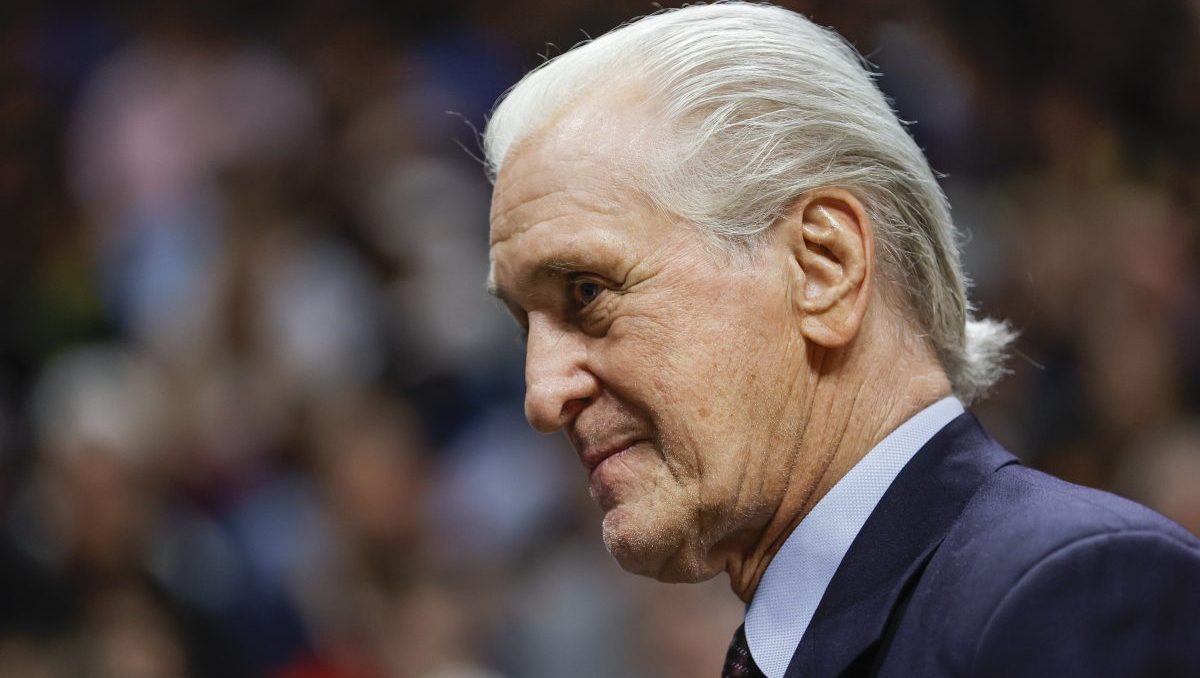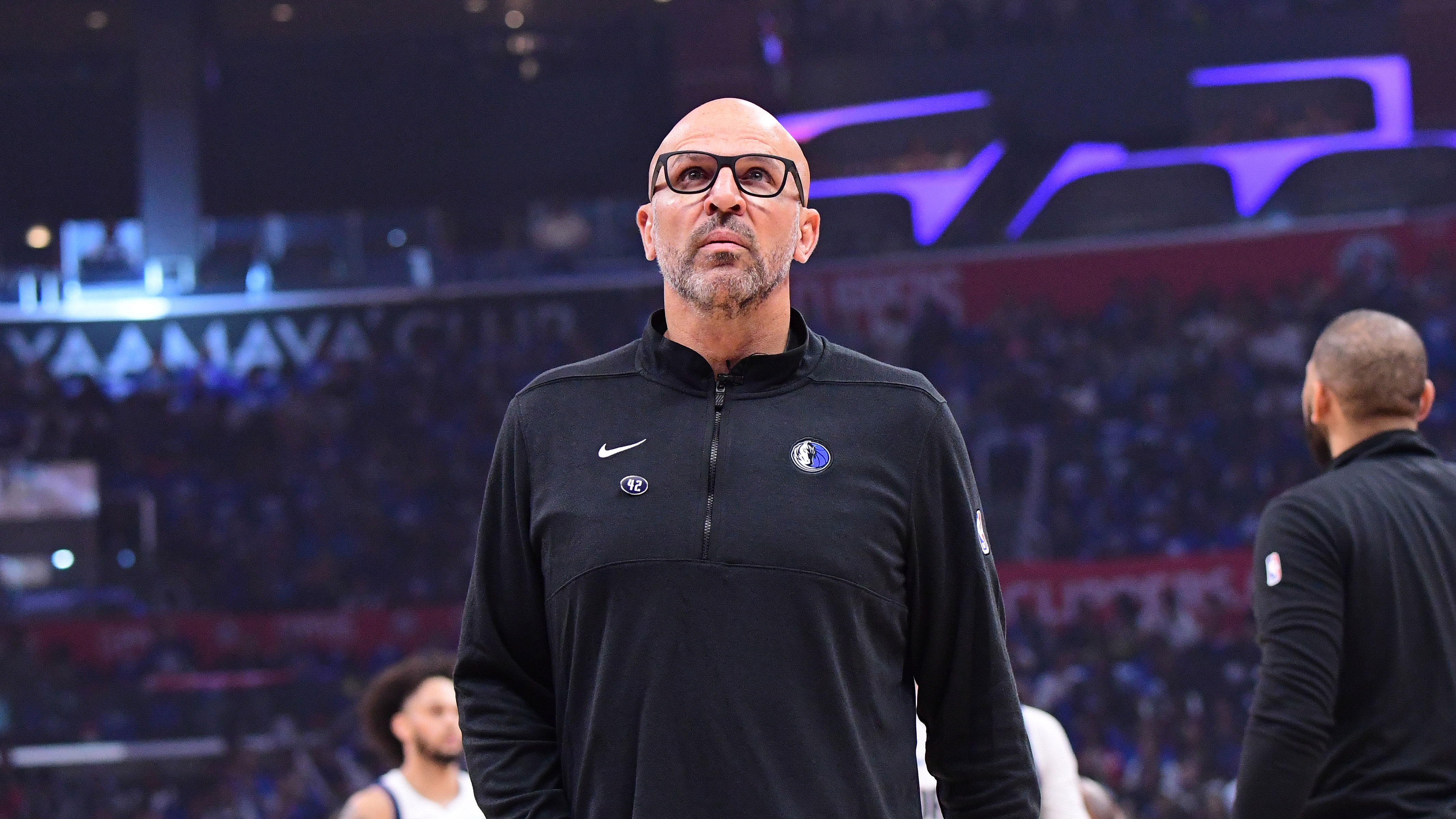The big man is back in the NBA.
A league once dominated by centers in the 1960s and 1970s shifted focus to athletic wings and long-range shooters in the modern era. But now, the last three regular season MVP awards have been won by centers and Nikola Jokic just put together a historic playoff run.
A center hadn't won league MVP since 2000 before the Denver Nuggets' big man won it in 2021 and 2022. Philadelphia 76ers center Joel Embiid finished second to Jokic both years before the two swapped spots in the voting for 2023.
Stay in the game with the latest updates on your beloved Chicago sports teams! Sign up here for our All Access Daily newsletter.
Now that Jokic has added a championship and Finals MVP to his resume, it's fair to start measuring him against the all-time greats. The center position is loaded with legends, dating all the way back to some of the league's first stars. Jokic is an untraditional big man, where he has the size and power but often prefers getting teammates involved while racking up triple-doubles.
Taking into account the 28-year-old Serbian's fresh title run, here’s a look at the 10 greatest centers in NBA history:
1. Kareem Abdul-Jabbar
Averages and accolades: 24.6 points, 11.2 rebounds, 3.6 assists, 2.6 blocks, six-time champion, six-time MVP, 19-time All-Star, 15-time All-NBA, 11-time All-Defense, second all-time leading scorer
NBA
Abdul-Jabbar is perhaps the most decorated player in the history of basketball. In addition to all the accolades listed above, the man formerly known as Lew Alcindor won three straight NCAA championships at UCLA to go along with three straight consensus All-Americans. The NCAA even outlawed dunking between 1967 and 1976 because of his dominance, which is how he refined the signature skyhook. In the NBA, Abdul-Jabbar starred for 20 seasons with the Milwaukee Bucks and Los Angeles Lakers.
2. Bill Russell
Averages and accolades: 15.1 points, 22.5 rebounds, 4.3 assists, 11-time champion, five-time MVP, 12-time All-Star, 11-time All-NBA
The greatest winner in NBA history, the late great Russell won 11 titles in his 13-year career. He wasn’t the scorer that some of his rivals were, but he was the best defender of his era (and possibly ever). The crux of Russell’s career is that blocks and steals weren’t yet an official statistic and there were no All-Defensive Teams until after he retired. The Boston Celtics legend has the NBA Finals MVP trophy named after him, even though he didn’t win any himself because it wasn’t implemented until his final season in 1969 (when it was awarded to Jerry West of the losing Lakers over Russell and John Havlicek).
3. Wilt Chamberlain
Averages and accolades: 30.1 points, 22.9 rebounds, 4.4 assists, two-time champion, four-time MVP, 13-time All-Star, 10-time All-NBA
On paper, there’s no reason Chamberlain shouldn’t be ahead of Russell -- but basketball isn't played on paper. The two competed in the same era, and Chamberlain’s offensive numbers top Russell’s in every category. Well, let's dig a little deeper. Chamberlain and Russell faced off in the playoffs eight times, with Russell winning seven of those series. Year after year, it was Russell getting the better of Wilt. Chamberlain’s gaudy numbers clearly make him an all-time great -- he’s just a tick below his rival. Chamberlain’s titles came in 1967 with the Philadelphia 76ers and in 1972 with the Lakers (after Russell retired).
4. Shaquille O’Neal
Averages and accolades: 23.7 points, 10.9 rebounds, 2.5 assists, 2.3 blocks, four-time champion, 2000 MVP, 15-time All-Star, 14-time All-NBA, three-time All-Defense
The man of many nicknames, Shaq was a beast from the moment he entered the NBA with the Orlando Magic. The Magic defeated Michael Jordan’s Chicago Bulls in the 1995 playoffs en route to the NBA Finals on the back of their Superman. O’Neal’s prime years came with the Lakers, as he was the 1A to Kobe Bryant’s 1B. Los Angeles three-peated from 2000 to 2002 with O’Neal winning Finals MVP each year. Later in his career, Shaq had a title run with a young Dwyane Wade in Miami and played with LeBron James in Cleveland.
5. Hakeem Olajuwon
Averages and accolades: 21.8 points, 11.1 rebounds, 2.5 assists, 3.1 blocks, two-time champion, 1994 MVP, 12-time All-Star, 12-time All-NBA, nine-time All-Defense, two-time DPOY
No one is more thankful for Michael Jordan’s baseball career than Hakeem Olajuwon. The Dream led his Rockets to the Finals in 1986 during his second season, losing to Larry Bird’s Celtics. Houston didn't return to the Finals until 1994 when Olajuwon helped defeat the New York Knicks for the first of back-to-back titles. Olajuwon was one of the greatest two-way players in league history. His signature Dream Shake was a thing of beauty, as defenders often jumped at the wrong pump fake.
6. David Robinson
Averages and accolades: 21.1 points, 10.6 rebounds, 2.5 assists, 3.0 blocks, two-time champion, 1995 MVP, 10-time All-Star, 10-time All-NBA, eight-time All-Defense, 1992 DPOY
The Admiral was appropriately nicknamed after attending school at Navy and missing his first two seasons due to military service from 1987 to 1989. Once he got on the floor for the Spurs, Robinson quickly proved his worth. He averaged at least 23 points per game in each of his first seven seasons before an injury-plagued 1996-97 campaign, which delivered the Spurs the No. 1 pick and a young power forward named Tim Duncan. Robinson and Duncan became one of the league’s best big man duos, winning two titles in Robinson’s later years (1999 and 2003, which was his last season).
7. Moses Malone
Averages and accolades: 20.6 points, 12.2 rebounds, 1.4 assists, 1.3 blocks, one-time champion, three-time MVP, 13-time All-Star, eight-time All-NBA, two-time All-Defense
Malone’s peak was among the most dominant in league history. During a five-year stretch from 1978-79 to 1982-83, he averaged 26.8 points and 15.4 rebounds per game while winning three MVPs and a title. The 1983 Finals MVP meshed perfectly with Julius Erving, as both were ABA stars who then shined in Philadelphia. His number is retired by both the Rockets and Sixers.
8. Nikola Jokic
Averages and accolades: 20.2 points, 10.5 rebounds, 6.6 assists, 1.2 steals, one-time champion, two-time MVP, five-time All-Star, five-time All-NBA
Nobody knows what comes next, but Jokic has the potential to jump even higher on this list before he retires. He just wrapped up his eighth NBA season after being drafted at No. 41 overall in 2014. Almost immediately, it became clear that Jokic was a special player. His unique passing ability for a seven-foot, nearly 300-pound behemoth is mesmerizing to watch. A few more MVP-level seasons and deep playoff runs could catapult the Joker up this list.
9. Patrick Ewing
Averages and accolades: 21.0 points, 9.8 rebounds, 1.9 assists, 2.4 blocks, 11-time All-Star, seven-time All-NBA, three-time All-Defensive
Ewing is in a league of his own among the 10 players on this list, but not for a reason he wants. He’s the only player listed to never win a title. The Knicks made a number of deep playoff runs with Ewing leading the way -- Jordan and the Bulls just often got in the way. Ewing lost to Jordan in five of his 12 playoff runs with the Knicks, including twice in the conference finals. The Knicks made the Finals in 1994 (losing to Olajuwon’s Rockets) and 1999 (losing to Robinson’s Spurs, though Ewing didn’t play in the series due to injury).
10. Bill Walton
Averages and accolades: 13.3 points, 10.5 rebounds, 3.4 assists, 2.2 blocks, two-time champion, 1978 MVP, two-time All-Star, two-time All-NBA, two-time All-Defensive, 1986 6MOY
Walton is the greatest “what if” on this list. His numbers don’t warrant discussion among the all-time great centers. But what he accomplished despite chronic foot injuries is nothing short of remarkable. He won two championships in college at UCLA in 1972 and 1973, then quickly led the Portland Trail Blazers to a title in his third pro season after two injury-plagued years. The injuries only worsened as he hit what should’ve been his prime, playing only 14 games from 1978 to 1982. His career concluded with the Celtics as he won Sixth Man of the Year and emptied his tank for the 1986 NBA champions.


